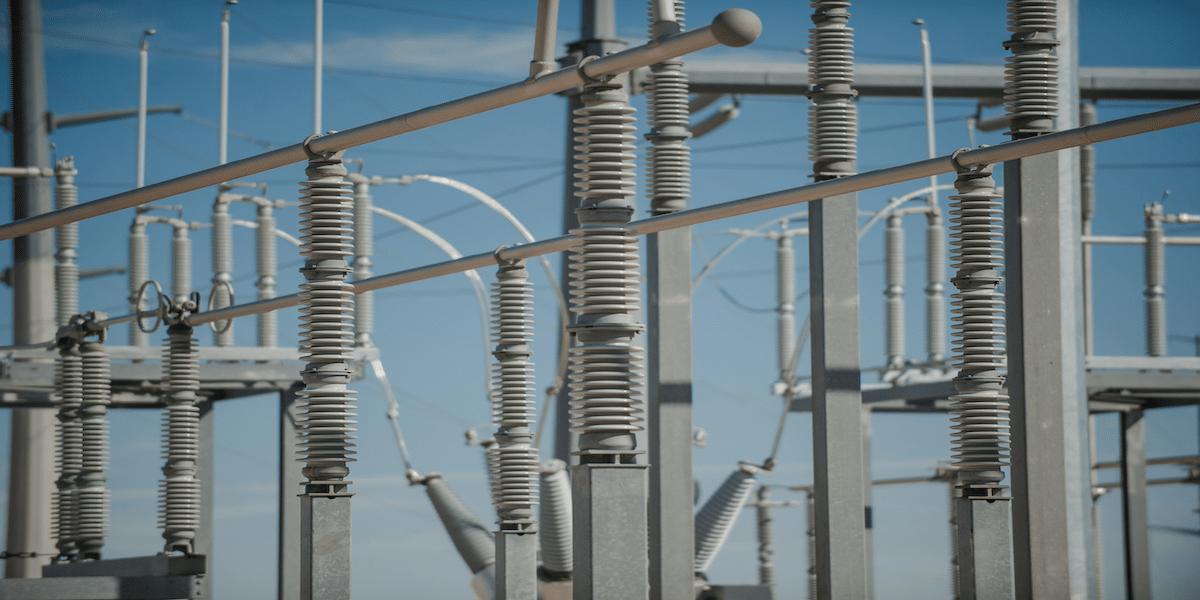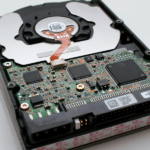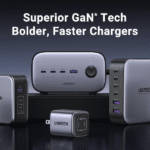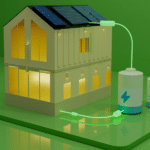Image commercially licensed from Unsplash
The best generators for power outages are those that can provide enough power to keep essential appliances and devices running during an outage. Standby generators that connect to your home’s power supply via transfer switch, such as those by Champion Power Equipment, Generac Guardian or Kohler, are recommended. In addition, inverter generators like Honda and Yamaha models are also good choices due to their reliability and efficiency. It is important to consult with a licensed electrician or certified generator installer to determine what size generator you need and to keep up with regular maintenance.
Overview of Power Generators
Power generators play a vital role in providing backup electricity during power outages, ensuring that essential appliances and devices continue functioning. These generators come in various types and sizes to cater to different needs. Standby generators are permanently installed outside your home and automatically turn on when the power goes out, while portable generators offer flexibility and can be easily transported wherever needed. Both options have their benefits and considerations, so it’s important to understand their pros and cons before making a decision.
Portable Generators Pros and Cons
Portable generators offer convenience and versatility, making them a popular choice for backup power during emergencies. One of their main advantages is their mobility; they can be easily transported to different locations, allowing you to bring power where it’s needed most. For example, if you’re camping or hosting an outdoor event, a portable generator can keep your lights on and devices charged.
On the other hand, portable generators have some limitations to consider. They usually run on gasoline or propane and require regular refueling. This means you need to ensure you have enough fuel on hand to keep the generator running for the required duration. Additionally, portable generators can be noisy due to their internal combustion engines, which may not be suitable for quiet environments or neighborhoods with noise restrictions.
Another factor to consider is the wattage capacity of a portable generator. Depending on its size, it may not be able to power all of your household appliances simultaneously. It’s important to calculate the starting wattage and running wattage of each appliance you intend to connect to determine if the generator can handle the load without overloading.
Furthermore, safety precautions must be taken when using portable generators. They should always be operated outdoors in well-ventilated areas to prevent carbon monoxide buildup, as this gas is extremely dangerous when inhaled. Additionally, proper grounding is essential to avoid electrical hazards.
To provide an example, let’s say you live in an area prone to frequent power outages. A portable generator can be a convenient option, allowing you to power essential appliances like your refrigerator, sump pump, or medical equipment during these outages. However, it may not be suitable for powering larger appliances such as air conditioning units or water heaters simultaneously.
- What are the best generators for power outages?
- Write 3 scientific statistics about “best generators for power outages”:
- According to a report from Grand View Research, the global diesel generator market size was worth USD 17.6 billion in 2020 and is expected to grow at a rate of 4.4% from 2021 to 2028.
- The home standby generators market is expected to grow approximately by USD 1.83 billion during 2019–2023, with an annual growth rate of over 27% according to Technavio’s market research report.
- A study by Zion Market Research suggests that by 2025, the global market for portable generators could reach approximately USD 6 billion, growing at a CAGR of roughly 3.5% between 2019 and 2025.
Standby Generators Overview
When it comes to reliable backup power, standby generators are a popular choice for homeowners. These generators are permanently installed outside the house and are wired directly to the electrical system. Standby generators connect to the power supply of your house via a transfer switch, automatically turning on in the event of a power outage. They typically run on natural gas, liquid propane, or diesel.
Standby generators offer several advantages over their portable counterparts. First and foremost, they provide seamless and uninterrupted power during an outage, ensuring that essential appliances and systems keep running smoothly. Additionally, standby generators can handle higher wattage loads, making them suitable for powering multiple circuits or even an entire home.
However, standby generators do come with some considerations. They require professional installation by a licensed electrician or certified generator installer. It is recommended to use a circuit breaker to protect your home and generator from overheating. It’s also important not to exceed 90% capacity of the generator’s total wattage output.
Think of a standby generator as your home’s personal superhero, ready to jump into action when the power goes out. With its ability to seamlessly take over and provide electricity to critical systems, it ensures that you never have to experience any disruption during an outage.
Must-Have Features in Portable Generators
Portable generators offer flexibility and convenience, making them ideal for those seeking backup power during emergencies or for outdoor activities. When selecting a portable generator, there are several must-have features that can ensure reliability and ease of use.
- Power Output: Portable generators come in various sizes with different power outputs measured in watts. To determine what size generator you need, consult a licensed electrician or certified generator installer. You can also make a list of the starting wattage and running wattage of each appliance you intend to power with the generator. This will help determine the minimum power output necessary.
- Fuel Efficiency: Look for generators that offer excellent fuel efficiency, as this can significantly impact long-term operating costs. Inverter generators, like the Honda and Yamaha models, are considered the gold standard for generators in terms of fuel efficiency but can be expensive. Finding a balance between power output and fuel efficiency is essential.
- Noise Levels: Generators can be noisy, so consider models that offer lower noise levels. Look for generators with noise reduction features such as sound insulating casings or mufflers. This is particularly important if you plan to use the generator in residential areas or campgrounds where noise restrictions may apply.
For example, the Champion Dual Fuel Portable Generator is known for its low noise levels, making it suitable for both recreational activities and emergency backup power.
Important Aspects: Fuel Efficiency and Noise Levels
When it comes to selecting a portable generator for power outages, two important aspects to consider are fuel efficiency and noise levels. Fuel efficiency is crucial because you want your generator to be able to run for an extended period without constantly needing refueling. This is particularly important during prolonged power outages when access to fuel may be limited. Additionally, a fuel-efficient generator helps to conserve resources and reduce operating costs in the long run.
For instance, imagine a scenario where there is a week-long power outage due to a severe storm. A generator with poor fuel efficiency would require frequent refueling, leading to additional hassle and expenses. On the other hand, a fuel-efficient generator could provide uninterrupted power for longer periods without worrying about running out of fuel.
Equally significant is considering the noise levels of the generator. During power outages, silence is often appreciated, especially when trying to sleep or concentrate on essential tasks. No one wants to deal with the constant rumbling and noise pollution of a loud generator running nearby.
Imagine trying to work from home during a power outage while your noisy generator drowns out every thought or conversation. Opting for a quieter generator can enhance your comfort and overall experience during challenging times.
It’s worth noting that advancements in technology have led to the development of quieter generators, such as inverter generators that use sound-dampening technology. These models are designed specifically to minimize noise levels while providing reliable backup power.
Power Requirements and Running Time
Determining your power requirements is essential before selecting a portable generator for power outages. You need to assess which appliances and devices you want to power during an outage and calculate their combined wattage. This will help you determine the minimum wattage capacity your generator should have.
Remember to consider both the starting wattage and running wattage of your appliances. Some devices, such as refrigerators or air conditioners, require a higher starting wattage before settling into their standard running wattage. It’s important to note that not all appliances need to be powered simultaneously, so prioritizing essential items can help you choose a generator with the appropriate capacity.
Additionally, considering the running time of the generator is vital for long-duration power outages. The running time describes how long the generator can provide power continuously before needing refueling. A longer running time can offer peace of mind during extended outages without the need for constant fuel management.
Imagine being in an area experiencing a prolonged power outage due to a natural disaster. Having a generator with an extended running time would ensure you have reliable power for essentials like lighting, heating, or even charging important electronic devices.
Ensuring Generator Longevity
To get the most out of your portable generator and ensure its longevity, it’s important to follow a few key guidelines. First and foremost, pay attention to where you place your generator during operation. It should be positioned on a flat, stable surface away from any potential hazards such as flammable materials or obstructions that could block proper ventilation. Adequate airflow is crucial for the generator’s cooling system and overall performance.
Regularly inspecting and cleaning your generator is another essential practice for maintaining its longevity. This includes checking the air filter and spark plug, cleaning or replacing them as needed. Additionally, be mindful of changing the oil regularly and following the manufacturer’s recommendations for the specific model you own. Proper oil levels and quality are vital for smooth operation and minimizing wear and tear on the engine.
For instance, imagine you have a portable generator that you rely on during frequent power outages in your area. By taking the time to inspect, clean, and perform routine maintenance tasks consistently, you can significantly extend its lifespan and maximize its reliability when you need it most.
Trustworthy Portable Generator Models
When it comes to selecting a reliable portable generator for power outages, there are several standout models that have earned the trust of consumers. These top-notch generators offer exceptional performance and durability, ensuring that you have a reliable source of backup power when you need it most.
One such model is the Honda EU2200i inverter generator. Renowned for its stability and continuous power output, this generator is perfect for powering sensitive electronics like laptops and smartphones during an outage. With Bluetooth connectivity and a long battery life, the Honda EU2200i ensures convenience and peace of mind.
Another highly regarded option is the Wen 56235i, known for its budget-friendly price tag without compromising on quality. This generator features an eco-mode switch that saves fuel, making it more cost-effective in the long run. It also boasts a quieter operation and automatic shutoff system for enhanced safety.
For heavy-duty power needs during blackouts or at construction sites, the Ryobi 6500 Watt generator is a reliable choice. Its robust construction and large fuel tank allow for longer operation without frequent refueling. This generator guarantees uninterrupted power supply even during extended outages.



















